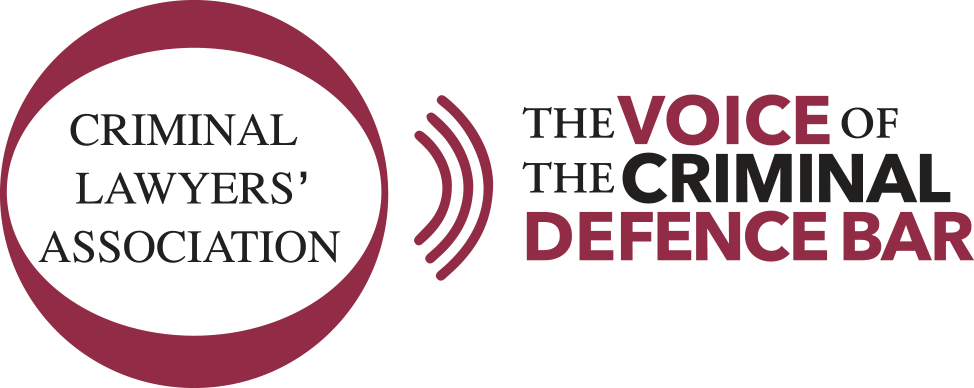Trusted Bail Hearing Lawyer in Toronto | Immediate Legal Support When You Need It Most
Need help with a bail hearing in Toronto? Our trusted defence lawyers provide fast, reliable legal representation focused on getting you or your loved one released as quickly as possible.
Understanding Bail Hearings in Ontario
Being arrested and held in custody is undeniably one of the most urgent and stressful legal situations a person can face. In Ontario, your first opportunity to potentially regain your freedom is through the bail hearing. This crucial legal proceeding determines not only whether you can be released while awaiting trial, but also sets the conditions of your release.
Facing the consequences of an arrest can be extremely overwhelming and stressful. With time being of the essence, it’s critical to act quickly and wisely. This is where a skilled bail hearing lawyer becomes essential. They will guide you to understand your rights, prepare for the hearing, and build a strong strategy to secure your release on the most favourable terms possible.
At Sadro Law, we understand how stressful and uncertain this process can be, especially when every moment counts. Our team is committed to providing prompt, thoughtful legal support, helping you move through this difficult time with clarity and confidence. Knowing your rights and the steps ahead can make a meaningful difference, offering a sense of control when you need it most.
Our goal is to ensure you have the best possible chance at a positive outcome, giving you the time, space, and support you need to prepare for the next phase of your legal journey.
What Is a Bail Hearing?
A bail hearing, which is officially termed a judicial interim release hearing, generally takes place within 24 hours following an arrest. But let’s be clear—this is not a trial. During this hearing, the court is not deciding whether the person is guilty or innocent. Instead, the focus is on determining whether the accused should be released back into the community or kept in custody while awaiting the resolution of their case.
In Ontario, the legal system operates on a guiding principle that people should remain free unless there's a compelling reason to hold them in custody. However, the situation isn't always that straightforward. A Crown prosecutor may argue that releasing the accused isn't advisable. This opposition can arise for several reasons:
- The accused might not return for their court date as required.
- There could be concerns that releasing the individual poses a threat to public safety.
- There may be a risk that the accused might commit additional crimes if released on bail.
- The magnitude of the charges might shake public confidence in the justice system should the accused be granted bail.
Deciding whether to grant or deny bail represents a critical juncture early in the criminal process. This decision must be handled with a sense of urgency and meticulous attention. After all, the outcome can significantly impact both the accused's immediate quality of life and their legal strategy moving forward.
Why Early Legal Support Matters
If bail is denied, the accused can experience serious consequences beyond the immediate loss of freedom. Imagine spending weeks, if not months, in a crowded provincial detention centre while waiting for your trial. This isn't just about being physically confined; it can disrupt your entire life. The stress and uncertainty can lead to lost job opportunities, cause separation from family and loved ones, and create an overwhelming temptation to accept a plea deal, even when there are strong grounds to contest your charges.
Early legal support is more than just a good idea—it's often crucial for safeguarding your future. At Sadro Law, we understand the stakes involved, which is why we leap into action the moment you reach out. We meticulously review every detail of your case, efficiently prepare your surety, and present a compelling and thoroughly organised release plan to the court. With a head start, we’re able to challenge any reasons the prosecution might have for wanting to keep you detained.
Because your freedom is invaluable, our expertise and swift action can make all the difference from the very beginning. We’re committed to being your advocate, standing by your side, and doing everything in our power to ensure that the path ahead leads you out of custody and onto a solid legal defence.
Types of Bail and Bail Release in Ontario
When someone is arrested in Ontario, the court must decide whether to release them from custody while their case proceeds, and under what conditions. This process is called bail—or more formally, judicial interim release. Bail allows the accused to return to the community with specific obligations in place, rather than remain in custody until trial.
There are several types of bail release in Ontario. Each one is designed to balance the presumption of liberty with public safety and court attendance. Let’s explore the different types of bail and bail release available in Ontario:
Common Scenarios That Require a Bail Hearing
In Ontario, the criminal justice system places significant emphasis on maintaining a fair balance between protecting the accused’s rights and ensuring public safety and welfare. As a key part of the legal process, bail hearings allow the court to assess whether someone charged with a criminal offence should be released from custody while awaiting trial. While every case is different, there are certain situations where a bail hearing is especially likely. Let’s look at some of these scenarios to better understand when and why they occur.
1. Serious Allegations Involving Violence
If someone is charged with a violent offence, a bail hearing is almost always required. Charges such as assault, domestic violence, robbery, or any offence involving weapons raise immediate concerns about public safety and the potential for the accused to reoffend. In these cases, the court must carefully evaluate the risk factors before deciding whether to grant bail. Bail is not automatically denied, but the process becomes more complex and closely scrutinized.
2. Repeat Offenders
Another frequent scenario involves individuals who have prior convictions or who have breached previous court orders. If the accused has a record of similar offences or a history of failing to appear in court, the judge may view them as a higher risk. In these instances, the bail hearing serves as an opportunity for the court to assess whether the person can be trusted to follow new release conditions or whether detention is more appropriate.
3. Flight Risk Concerns
In some cases, the concern is not about public safety, but rather about whether the accused will return to court. Indicators of flight risk include a lack of ties to the community, such as not having stable employment, family connections, or a fixed address. During a bail hearing, the defence may propose specific conditions—such as a surety or regular reporting—to satisfy the court that the accused will stay in the area and attend all proceedings.
4. Complex Cases and Public Interest
Cases that are legally complex or have attracted significant public attention are more likely to proceed to a formal bail hearing. These might include instances involving large-scale fraud, organised crime, or offences involving multiple accused persons. In such situations, the court may need more time and information before deciding on release, especially when public confidence in the justice system is at stake.
5. Youth or Vulnerable Accused Persons
When the accused is a young person or someone with mental health challenges, a bail hearing still takes place, but the court may take a slightly different approach. In these situations, there is often a greater focus on rehabilitation, support systems, and tailored conditions that reflect the individual’s needs while still addressing public safety concerns.
Each scenario highlights how important bail hearings are in protecting both individual rights and safety of the community. They are not merely procedural, but are often the first major decision point in a criminal case. With the right legal support, it’s possible to present a strong release plan, challenge the Crown’s position, and take the first step toward resolving your case on your terms.
Why You Need a Trusted Bail Hearing Lawyer in Toronto
When it comes to bail hearings, there’s more on the line than most realize, making it crucial to have reliable legal representation. A bail hearing is often your first—and possibly only—chance to be released from custody during the ongoing proceedings of your case. It’s a critical step that should never be taken lightly. It can have profound effects on your freedom, your job, your family obligations, and your ability to prepare an effective defence.
The moment you step into this process, having an experienced bail hearing lawyer in Toronto by your side ensures that your rights are protected from the very beginning. While the court setting might appear straightforward on the surface, the reality is that bail hearings can be both legally intricate and fast-paced. The prosecution might strongly advocate for your detention, and if you're not prepared to respond effectively, you could be held in custody for weeks or even months.
A skilled defence lawyer will take the time to understand all the details of your case, identify potential risks, and build a strong release plan. This often involves coordinating a suitable surety, planning a comprehensive supervision approach, and challenging any claims made by the prosecution. More importantly, your bail hearing lawyer will also prepare you for what to expect and represent you in court—where each statement holds significant weight.
The quality of the legal representation you have at the bail stage directly affects whether you’re released or detained. That’s why choosing the right lawyer as early as possible can significantly influence not just your immediate future but also the entirety of your case.
Our Criminal Defence Strategy Focused on Securing Your Release
When you're held in custody, the first priority is getting you out—safely, quickly, and with the fewest restrictions possible. At Sadro Law, our approach to bail hearings is guided by one clear goal: to ensure your release, allowing you to continue with your defence while free, rather than confined. We understand that each case is unique, and therefore, no two bail strategies are identical. Nevertheless, our criminal defence strategy consistently starts the same way—with fast action and careful planning.
We conduct a thorough assessment of your individual circumstances, the specifics of the charges, your personal history, and any concerns the Crown might have. This lays the groundwork for crafting a release plan that aligns with the court’s main priorities: ensuring public safety, minimizing the risk of reoffending, and ensuring your appearance in court as required.
Our preparation might involve proposing a reliable surety and ensuring they are adequately prepared for court proceedings, assembling documents that highlight your strong community ties, and engaging in pre-hearing negotiations with the Crown. In cases that present more significant challenges, we also develop compelling legal arguments to contest pre-trial detention and demonstrate why such detention is unwarranted or unjust.
We never depend on generic defences or eleventh-hour arrangements. At Sadro Law, every detail matters—and we come to your hearing fully prepared to advocate for your release with clarity, authority, and promptness.
What to Expect at a Bail Hearing
For many people, a bail hearing is their first experience with the criminal court system. However, understanding the process can significantly reduce anxiety and equip you or your loved one with the knowledge to better navigate this crucial stage.
Typically, a bail hearing is conducted within 24 hours of an arrest. In Toronto, these hearings may be held in person at courtrooms or via video link from detention centres. At the hearing, the Crown will present arguments as to why you should remain in custody or why specific conditions should be imposed for your release. This is what's known as the “show cause” hearing. Depending on the charges, the burden may be on the defence or the Crown to justify release or detention.
Your lawyer will present arguments for why you should be granted bail. This is supported by a strategic plan that often includes proposing a surety, a person who commits to supervising you to ensure compliance with any set conditions. The court takes various factors into account, such as:
- The gravity of the charges you face
- Any previous criminal record
- Your connections within the community
- The strength of the proposed supervision
- Potential risks to public safety or the alleged victim
Following these deliberations, the judge or justice of the peace will make a decision regarding your release and any accompanying conditions, or, alternatively, could order continued detention.
While many hearings conclude in one session, some might require additional time, especially when the case is contested. Throughout the proceedings, it's essential to stay informed about your rights, explore your options, and understand the implications of each potential outcome for your case.
Possible Outcomes of Bail Hearings
At the end of a bail hearing in Ontario, the court can take one of several possible directions, each with distinct implications for the accused. The most straightforward is granting release. In this situation, the accused is given the opportunity to return to the community while awaiting their trial. The court may set expectations around that release and require all necessary court appearances. Despite these conditions, the primary takeaway here is that the person is no longer held in custody.
Another possible outcome of a bail hearing is detention. This happens when the court finds that releasing the individual would pose too great a risk—whether to public safety, the legal process, or their likelihood of appearing in court. When detention is ordered, the person will remain in custody until either their trial date comes or a successful bail review alters this decision.
At times, the outcome of a bail hearing doesn’t result in a final decision. The court might choose to adjourn the hearing, usually because additional time is required to gather further documentation or arrange necessary support. Although an adjournment delays a final decision on release or detention, it serves as a critical period for preparation and ensures that all involved parties are adequately informed.
In some instances, a consensual resolution may surface. Sometimes, both the Crown and the defence reach an agreement on the conditions of release before the hearing takes place. In such cases, the court reviews this agreement and typically endorses it if it meets the necessary legal standards. This path allows for release without a heated contest in court, offering a more streamlined and less adversarial process.
Each of these conclusions—release, detention, adjournment, or consent—reflects the court's ongoing effort to balance individual freedoms with broader societal interests. Having a lawyer who understands this balance and can clearly communicate your circumstances to the court can make all the difference in the outcome.
Why Choose Sadro Law as Your Bail Hearing Lawyer in Toronto
When you or a loved one is held in custody, securing release becomes the top priority. A bail hearing is not merely a formality—it is your first opportunity to return home, safeguard your livelihood, and begin preparing your defence properly. At Sadro Law, we fully grasp the significance of this stage and treat every bail matter with the urgency, care, and strategic approach it warrants. Here’s why clients across Toronto trust us to represent them at this critical stage:
Having the right lawyer by your side can mean the difference between detention and release. We know what’s at stake, and we act quickly, strategically, and with purpose. Let us stand with you in court—and fight for your freedom from day one.
See What Our Clients Have to Say
Frequently Asked Questions
Bail hearings can be stressful. That's why having clear, reliable information can make all the difference. Below, we’ve answered some of the most common questions people ask:
A Commitment to Excellence Across All Legal Services
At Sadro Law, we recognize that navigating the legal system in Toronto can be one of life's most challenging experiences. That's why we prioritize a personalized approach for each client to ensure your needs are meticulously addressed. Across our diverse range of services, whether you're dealing with criminal charges, navigating the complexities of licence suspensions, or seeking to remove a criminal record, we bring a wealth of experience and tailored strategies to the table. Our team, based in Toronto and proficient in areas such as assault and impaired driving cases, collaborates with you to develop a robust legal strategy aimed at achieving your goals. With Sadro Law, you can expect dedicated attention, expert guidance, and a steadfast commitment to securing a favorable outcome.
Your Defence Starts Here
Facing a bail hearing in Toronto? Sadro Law acts fast to protect your freedom. Our bail hearing lawyers move quickly, build strong release plans, prepare sureties, and challenge detention so you or your loved one can get out of custody as soon as possible. Get immediate legal support, every hour counts.
Free Consultation – No Obligation
Tell us about your case. We’ll review your situation and explain your best legal options — confidentially and without pressure.
Why Choose Sadro Law
- Toronto-based criminal defence firm
- Proven courtroom results
- Personal, compassionate guidance
- Available 24/7 for urgent legal matters
Request a Free Consultation
Criminal Law Form
What Happens After You Contact Us
- Request a free, no-obligation consultation by filling out a short form.
2. Our bail hearing lawyers will contact you promptly to discuss your situation.
- After assessing your case and goals, we’ll create a clear defence strategy and take immediate action on your behalf.













